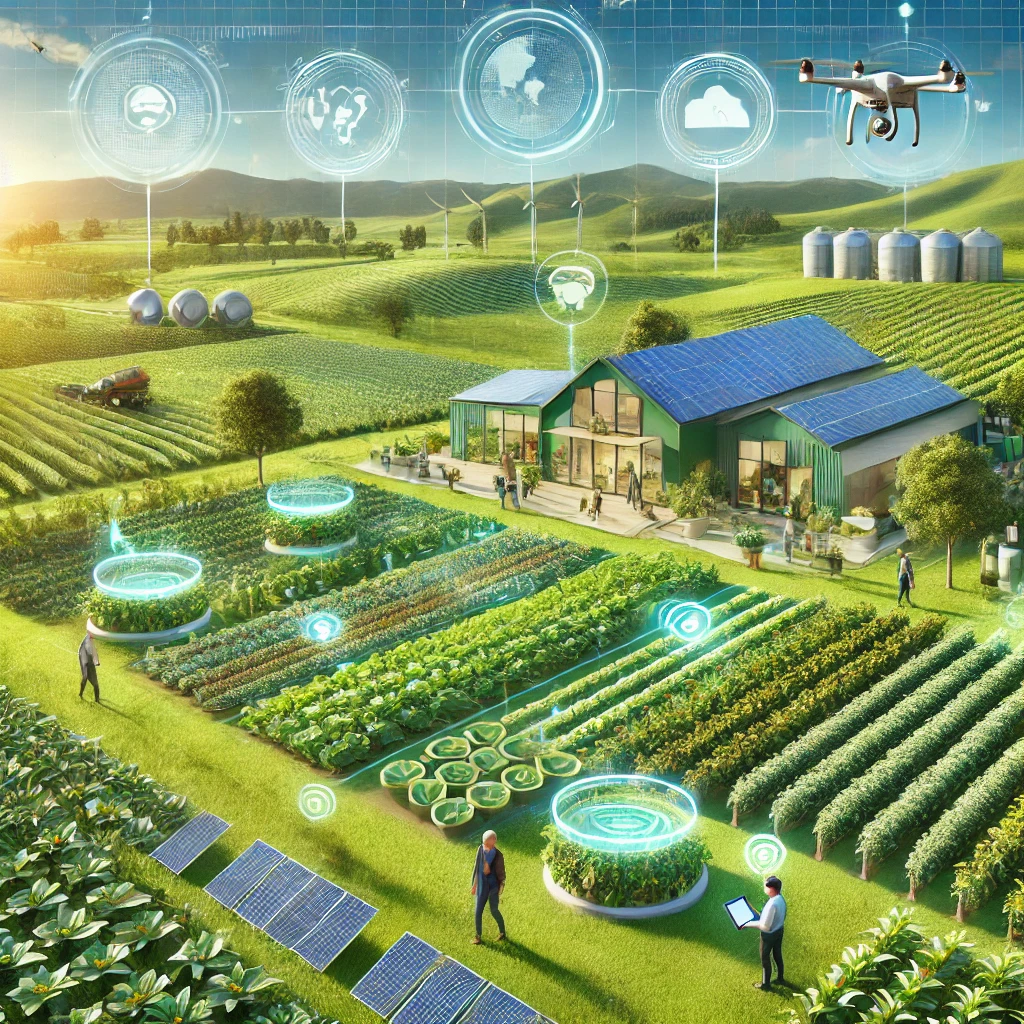Sustainable agriculture is more than just a farming method—it’s the key to ensuring food security, protecting the environment, and maintaining economic stability for future generations. As the global population continues to grow, traditional farming practices that deplete soil nutrients, increase pollution, and contribute to climate change are no longer viable. Instead, sustainable agriculture, including organic farming, regenerative techniques, and eco-friendly innovations, is shaping the future of food production. This guide explores the principles, benefits, and best practices of sustainable farming and how it can revolutionize the agricultural industry.

What Is Sustainable Agriculture?
Sustainable agriculture refers to farming practices that meet current food needs without compromising the ability of future generations to produce food. It focuses on maintaining healthy ecosystems, reducing environmental impact, and improving farm productivity in an eco-friendly way. Unlike conventional farming, which often relies on chemical inputs and intensive land use, sustainable agriculture integrates natural processes such as crop rotation, soil regeneration, and biological pest control.
- Soil Health & Regeneration: Sustainable farming enhances soil fertility through composting, cover cropping, and reduced tillage, which prevents erosion and nutrient depletion.
- Water Conservation: Efficient irrigation systems, such as drip irrigation and rainwater harvesting, help preserve water resources.
- Biodiversity & Ecosystem Protection: Encouraging crop diversity, agroforestry, and pollinator-friendly habitats improves farm resilience and environmental balance.
- Natural Pest & Disease Control: Instead of synthetic pesticides, sustainable farming utilizes integrated pest management (IPM) techniques, including natural predators and organic repellents.
- Energy Efficiency & Low Carbon Footprint: The adoption of renewable energy sources, reduced fossil fuel dependency, and carbon sequestration methods help mitigate climate change.
Benefits of Sustainable Agriculture
Environmental Benefits: Reduced soil erosion, improved water quality, and lower greenhouse gas emissions.
Economic Advantages: Lower input costs, higher profitability through organic and sustainable product markets, and long-term productivity.
Healthier Food Production: Eliminates harmful chemical residues, leading to safer, nutrient-rich food for consumers.
Resilience to Climate Change: Farms that practice sustainability are better equipped to withstand extreme weather conditions such as droughts and floods.
Best Sustainable Farming Practices
Crop Rotation & Companion Planting: Prevents soil depletion and enhances natural pest control.
Regenerative Agriculture: Builds soil organic matter and improves biodiversity through techniques like agroforestry and holistic grazing.
Organic Farming Methods: Avoids synthetic chemicals and emphasizes natural fertilizers, composting, and green manure.
Smart Technology & Precision Farming: Uses data-driven approaches, including AI, IoT sensors, and GPS-guided machinery, to optimize efficiency and resource use.
Challenges in Sustainable Agriculture & Solutions
High Initial Costs: Transitioning to sustainable methods requires investment, but long-term savings and government incentives help ease the burden.
Pest & Disease Management: Farmers can use organic pest control solutions, beneficial insects, and crop diversification to combat pest issues without chemicals.
Market Access & Certification: Sustainable and organic certifications enhance credibility, allowing farmers to tap into high-value markets.
The Future of Sustainable Agriculture
As consumer awareness grows and climate challenges intensify, sustainable agriculture is no longer optional—it’s a necessity. Advancements in biotechnology, AI-driven farming, and alternative protein sources are paving the way for a more resilient agricultural system. Governments, researchers, and farmers must work together to promote policies and innovations that support sustainable food production.
Sustainable agriculture is the future of farming. By adopting eco-friendly techniques, conserving natural resources, and integrating innovative technologies, farmers can ensure long-term productivity while protecting the planet. Whether you’re a small-scale grower or an agribusiness, transitioning to sustainable practices is a step toward a healthier, more prosperous future for all.